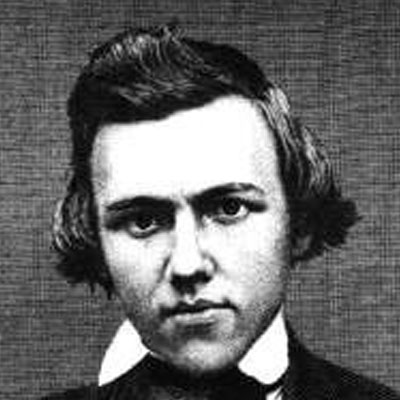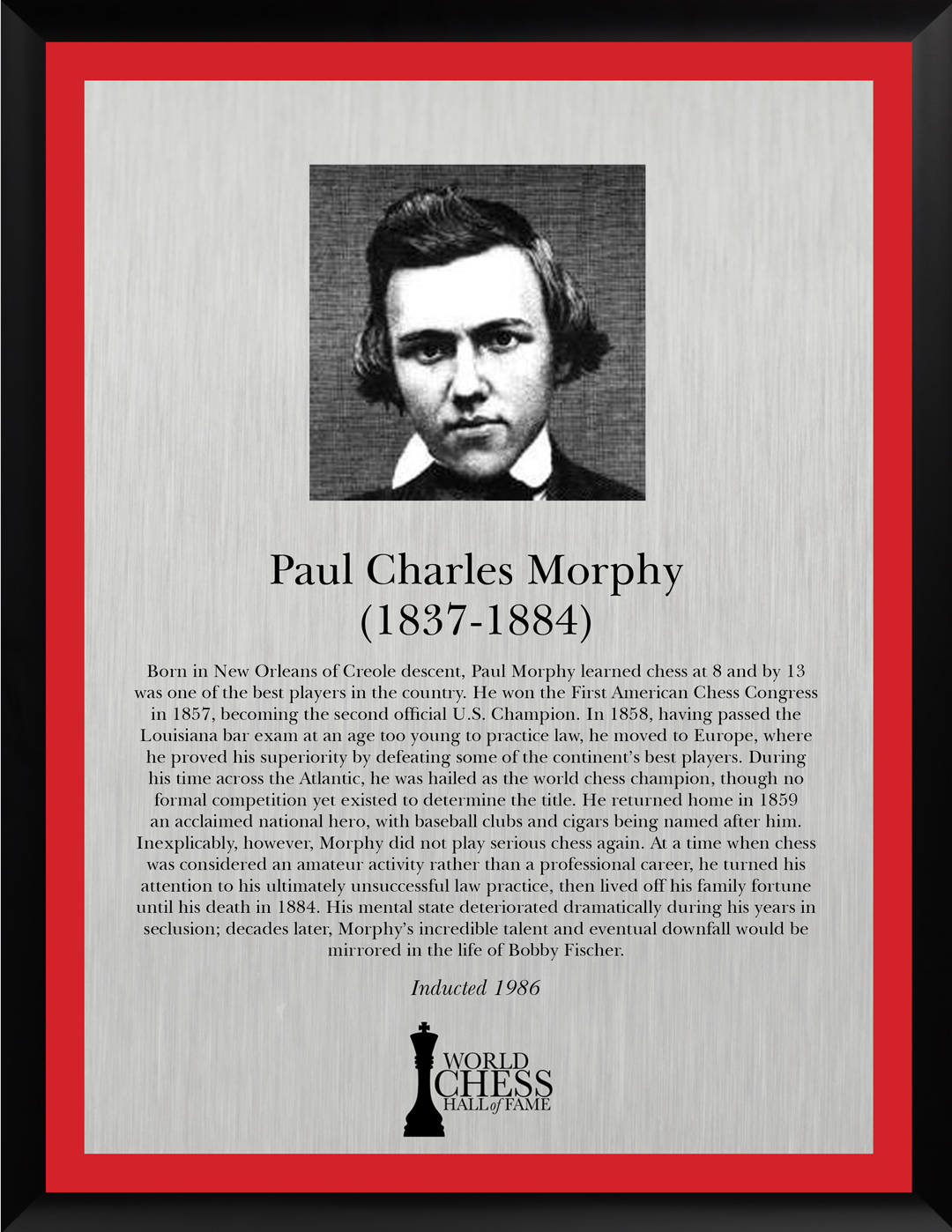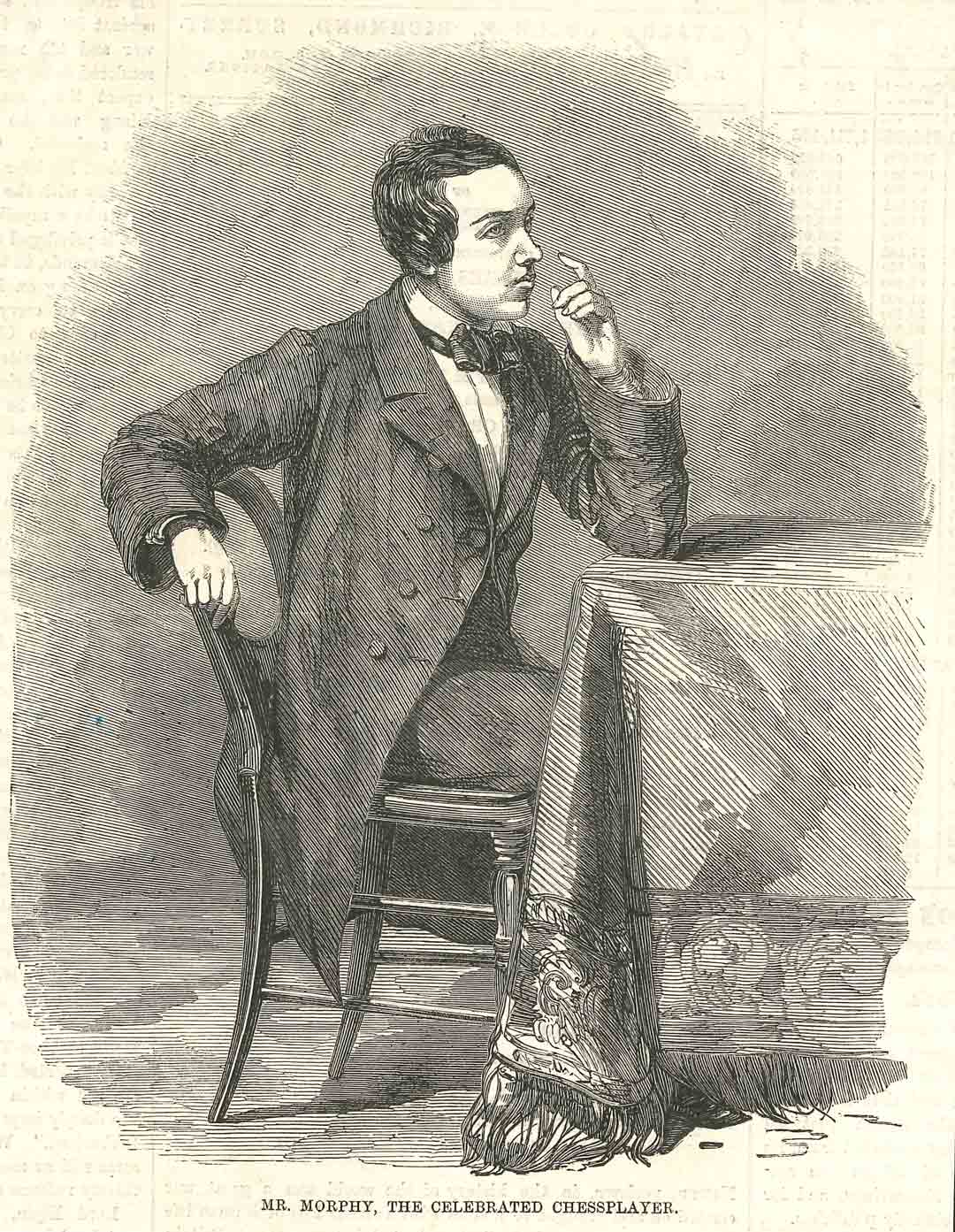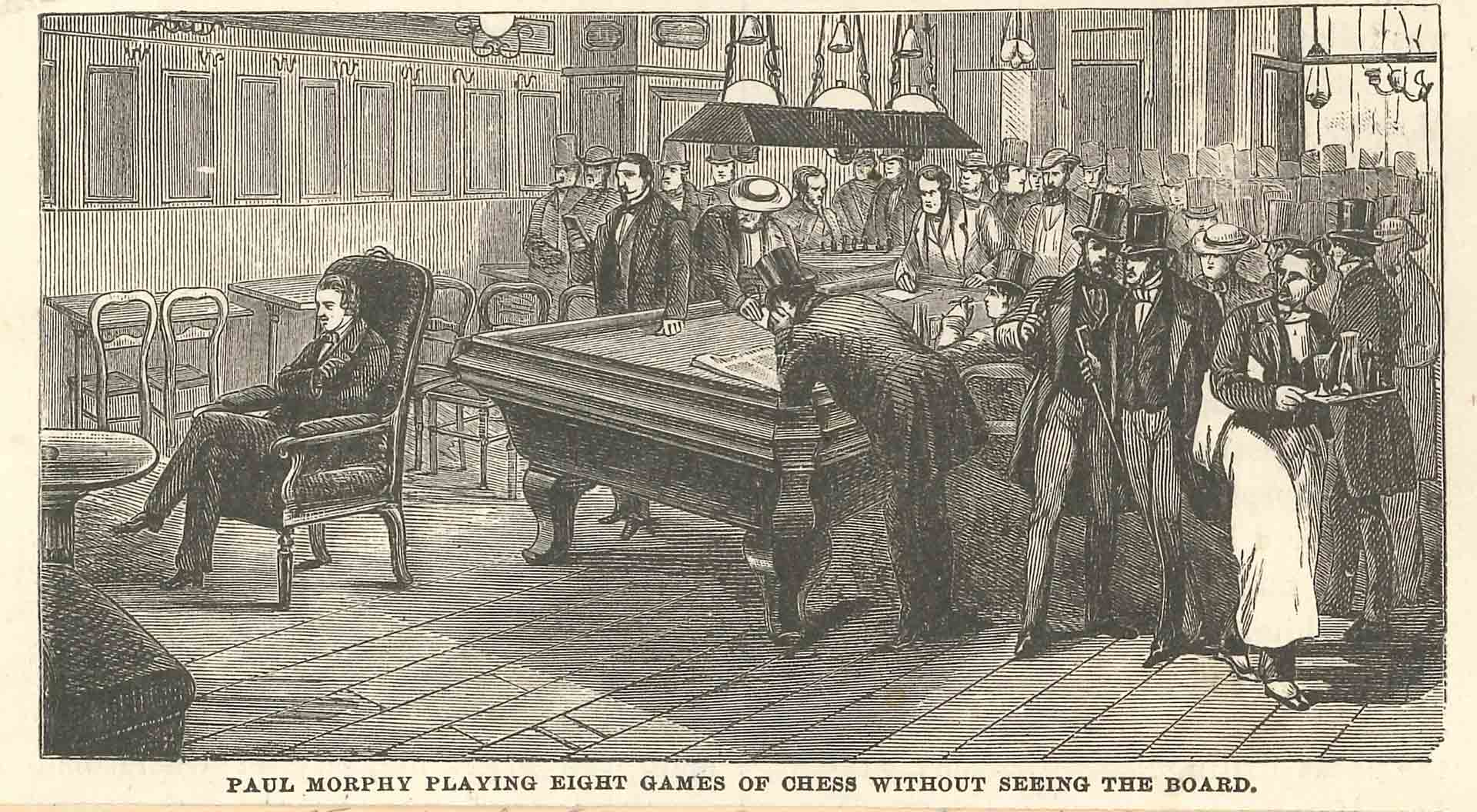 (1837-1884)
(1837-1884)
U.S. Chess
Hall of Fame
Inducted 1986
World Chess
Hall of Fame
Inducted 2001
Born in New Orleans of Creole descent, Paul Morphy learned chess at 8 and by 13 was one of the best players in the country. He won the First American Chess Congress in 1857, becoming the second official U.S. Champion. In 1858, having passed the Louisiana bar exam at an age too young to practice law, he moved to Europe, where he proved his superiority by defeating some of the continent’s best players. During his time across the Atlantic, he was hailed as the world chess champion, though no formal competition yet existed to determine the title. He returned home in 1859 an acclaimed national hero, with baseball clubs and cigars being named after him. Inexplicably, however, Morphy did not play serious chess again. At a time when chess was considered an amateur activity rather than a professional career, he turned his attention to his ultimately unsuccessful law practice, then lived off his family fortune until his death in 1884. His mental state deteriorated dramatically during his years in seclusion; decades later, Morphy’s incredible talent and eventual downfall would be mirrored in the life of Bobby Fischer.
Morphy was a revolutionary player, being the first to understand and demonstrate the value of long-term strategic development rather than premature attacks and traps. Nevertheless, he often won by spectacular piece sacrifices that continue to entertain and amaze admiring players to this day. Although his title as first chess world champion is unofficial, his dominance of his contemporaries leaves no doubt of his place in chess history. Despite eschewing the game for most of his life, he is still revered around the world as one of the game’s most brilliant players.



